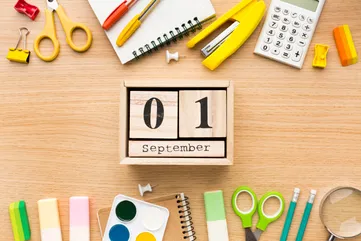Procrastination
Procrastination is when your teen delays important tasks not because they're lazy, but because their brain is trying to avoid uncomfortable emotions like anxiety, boredom, or fear of failure.
Why procrastination can be a problem
Procrastination creates a vicious cycle: delay increases anxiety, which increases avoidance, which increases delay. Eventually, everything becomes an emergency.
Common procrastination patterns:
• Cleaning room instead of starting homework
• Researching endlessly without writing anything
• Waiting for the "perfect moment" to start
• Doing easy tasks while avoiding important ones
• Convincing themselves they "work better under pressure"
• Creating elaborate plans instead of taking action
This cycle damages grades, relationships, and self-esteem. Your teen knows they should start but feels paralyzed, leading to shame that makes starting even harder.
You're not alone
If your teen spends three hours "getting ready" to study or suddenly develops an urgent need to reorganize their bookshelf when facing a big project, you're not alone. Research shows procrastination affects 80-95% of students. It's not a character flaw; it's an emotional regulation challenge. The teenage brain is particularly vulnerable because the emotion centers are fully developed while impulse control is still maturing. Understanding procrastination as emotional avoidance rather than laziness changes how we address it.
What it looks like day to day
Student
Your teen has a project due tomorrow they've known about for three weeks, and they're finally starting at 10 PM, claiming they "forgot" despite your daily reminders.
Parent
You watch your teen spend an hour sharpening pencils, arranging their desk, and making the perfect study playlist instead of actually opening their textbook.
Tiny steps to try
Break the procrastination cycle by addressing emotions and lowering barriers to starting.
- 1
Two-minute start
Commit to just two minutes of the avoided task. Set a timer. Permission to stop after two minutes paradoxically makes continuing easier.
- 2
Emotion naming
Before avoiding, identify the feeling: "I'm anxious about not understanding this." Naming emotions reduces their power and enables problem-solving.
- 3
Temptation bundling
Pair avoided tasks with something enjoyable. Listen to favorite music while organizing notes. This reduces the emotional resistance to starting.
- 4
Progress over perfection
Set "good enough" standards for first attempts. Perfection paralysis is procrastination's best friend. Aim for done, not perfect.
- 5
Accountability partner
Tell someone specific start times: "I'm starting math at 4 PM." External accountability can override internal resistance.
Why understanding procrastination matters
Procrastination isn't about time management or laziness; it's about emotional regulation. Tasks that trigger anxiety, boredom, or fear activate the brain's avoidance systems.
Research by Dr. Timothy Pychyl shows procrastination is an emotion-focused coping strategy. We delay tasks that make us feel bad, choosing short-term mood relief over long-term goals. For teens with ADHD, procrastination can also stem from executive dysfunction and difficulty with task initiation. Understanding the emotional roots helps us address the real problem rather than just telling teens to "stop procrastinating."
Ready to help your teen thrive?
Get personalized 1-on-1 coaching to build better habits and boost grades. Join 10,000+ families who trust Coachbit.
Frequently Asked Questions
Should I use rewards or punishments to stop procrastination?
Neither works long-term because they don't address the emotional root. Rewards might provide temporary motivation, but they don't help teens manage the anxiety or overwhelm causing procrastination. Punishments increase negative emotions, potentially worsening avoidance. Instead, focus on emotional support, breaking tasks smaller, and building starting strategies.
My teen says they work better under pressure. Is this true?
While some people feel more focused with deadlines, this is usually procrastination rationalization. What feels like "working better" is actually adrenaline overriding executive dysfunction temporarily. The quality of work and learning suffers, and the stress damages health. Help them experience the difference by supporting early starts for comparison.
Related Terms
ADHD Paralysis
ADHD paralysis is the overwhelming inability to start or complete tasks despite desperately wanting to, caused by executive function overload.
Emotional Regulation
Emotional regulation is your teen's ability to manage and respond to feelings in healthy ways, even when emotions feel overwhelming or out of control.
Perfectionism
Perfectionism is the tendency to set unrealistically high standards and base self-worth on flawless performance, often leading to procrastination, anxiety, and fear of failure.
Task Initiation
Task initiation is the ability to start tasks without excessive procrastination, even when the task feels boring, overwhelming, or difficult.
Time Management
Time management is the ability to plan, prioritize, and use time effectively to accomplish tasks and meet deadlines without constant crisis.
Related Articles

3 Tips to Help Your Child Focus on Homework
Kids struggle to focus and are easily distracted because their brains are undergoing rapid development. There are effective tools to improve concentration and focus in kids.
Read article
Finding Order in the Chaos – Setting up Calendars for Kids
Creating a calendar and daily schedule for kids can be beneficial to manage school, homework, extracurriculars and hobbies. Color-coding and time-blocking are helpful tools for kids with ADHD.
Read article
